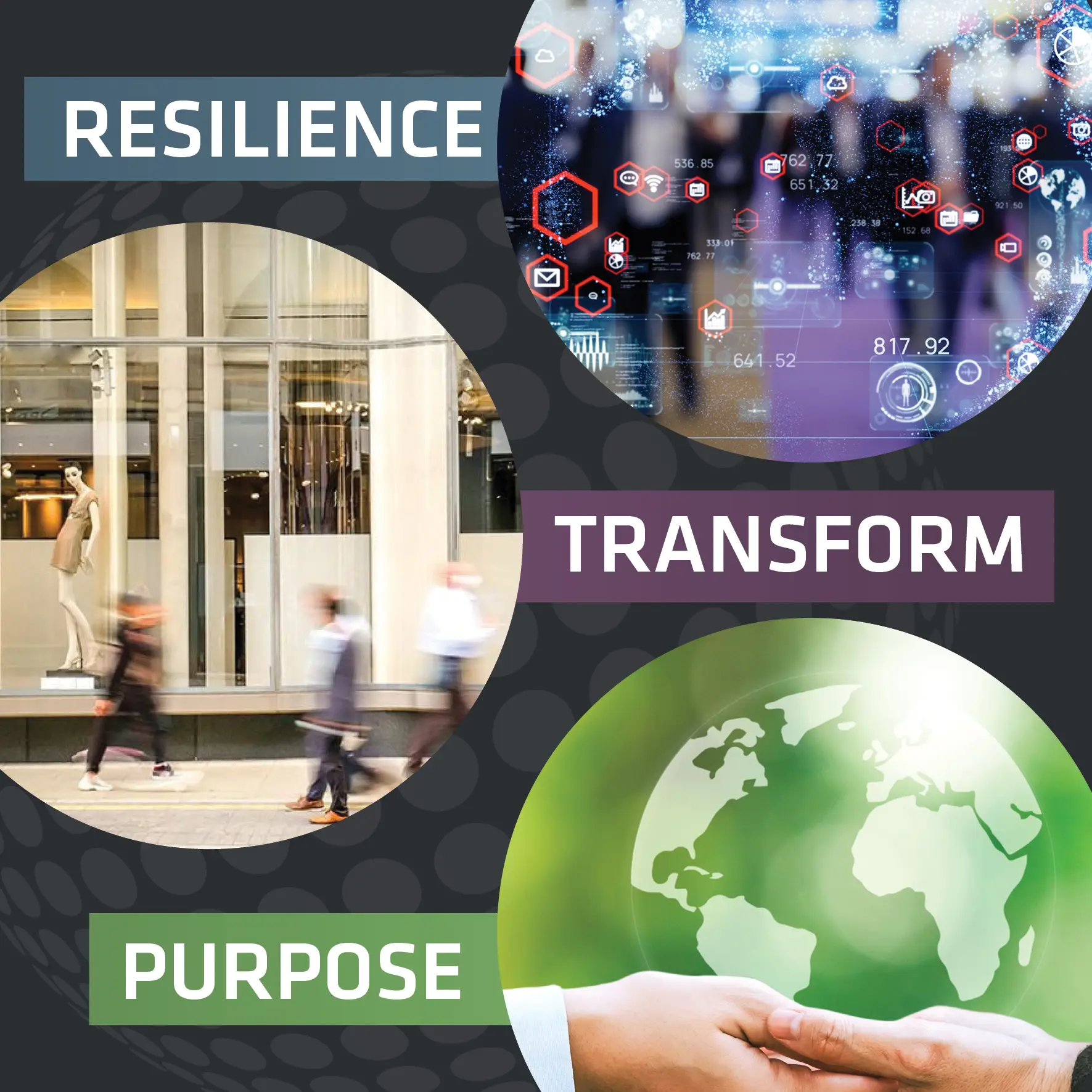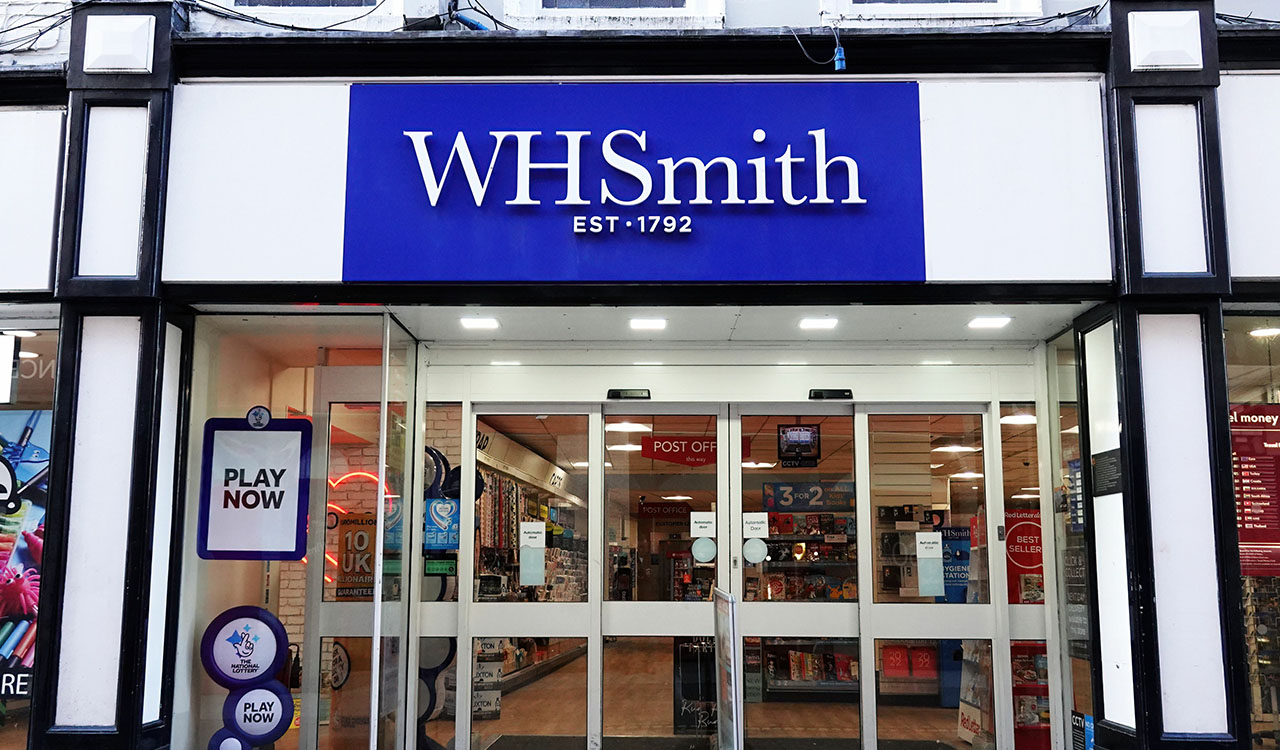World Retail Congress is more than a meeting. It is the incubation ground for collaboration on new ideas, innovating products and services, and inspiring partnerships. Balanced on three pillars – Resilience, Transformation and Purpose – WRC has co-partnered with leading change agents in the retail sector to reimagine and reinvent tired, traditional retail strategies and operations.
Resilience
Boston Consulting Group partnered with WRC to produce a joint report on what makes an organization resilient facing a series of geopolitical, economic, and social factors, with a special focus on how artificial intelligence (AI) and advanced analytics (AA) technologies can provide solutions. These technologies enable organizations to develop specific tools to deliver an immediate boost to growth and profitability – from pricing optimization to supply chain resilience to hyper-personalization – while holistically transforming the entire retail value chain.
The fact that we are still talking (and arguing) about sustainability is shocking. Finally, we are moving toward a new era of retail where sustainability is regarded as the norm and embedded into strategy and operations. But reaching critical targets is hard.
Resilient retail describes the need for retailers to develop new strategies to drive bottom-line growth when the top-line is under pressure and in finding ways of serving customers better with the best possible value at a time when sourcing and supply costs are rising by double digits, as described by WRC Chairman, Ian McGarrigle.
Order this special report to key in on an outlook for 2023, the top three concerns of global retailers, how to address the relentless ascent of rising costs of goods, how to manage declining consumer spend, stabilizing supply chain volatility and how to finesse quick wins. The report concludes that AI will be a critical enabler. Fortunately, retailers are rich in the data needed to power these AI engines, so it is a matter of acting today to harness this advantage to drive the business into the future. Order it free of charge!
Transformation
Everyone talks about transformation, but few know how to manage the human factor in mobilizing transformational change. Alix Partners has produced a joint study to understand a new balance between on and offline and more importantly how retailers can finally identify how to deliver not just sales growth but also bottom-line growth. The report shows that very few retailers have been able to make ecommerce profitable so far. However, it is possible to build a robust and value creating business by adopting a “Digital-First” operating model.
The report reveals that digital transformation comes with a price. As online penetration grows, retailers’ profits shrink. The cost of serving customers anytime, anywhere, at any speed does not bring in enough top-line growth to best monetize existing investments in machinery and technology. Add to that, decelerating digital growth, high digital costs, lower profits, and rising consumer expectations for digital services. It’s clear that retailers can’t keep operating in the same way and expect different results.
For Digital-First Retail to succeed, retail executives must first understand the massive organizational shifts needed — and then have the stomach to make them to thrive or even survive in the long-term. Every retailer should be prepared to rethink its operating model towards Digital-First demand. Retailers that do will reap the benefits. Those that don’t change will continue to watch their profits shrink as online penetration grows with their competitors.
This blueprint for transformational change should be required reading for all decision makers in retail. Order your complimentary copy here.
Purpose
Shared purpose is the lynchpin that separates average from great organizations. And operating a purpose-driven retail brand is not savvy marketing messaging or greenwashing, it is a vision and belief in a better future. But it can be a double-edged sword balancing the often-opposing forces of where to invest and where to cut with loud and persistent consumer demand for businesses to have a clear sense of purpose.
The fact that we are still talking (and arguing) about sustainability is shocking. Finally, we are moving toward a new era of retail where sustainability is regarded as the norm and embedded into strategy and operations. But reaching critical targets is hard.
Deloitte and WRC partnered on a joint report on purpose with a focus on sustainability. It explores new ways that retailers can harness innovation, technology, and resourcefulness to deliver meaningful solutions—not just for their business or customer, but for the planet, too.
Conventional wisdom agrees that there is a sense of urgency regarding climate change and an environment at risk. And innovators look to tech as tools to unlock solutions. New technology helps optimize across sourcing and production, operations, supply chain, and logistics/reverse logistics, as well as address the imperative for tracking and tracing.
And the stakes are high. Inaction on climate change could cost the world’s economy US$178 trillion by 2070. Governments and regulatory bodies are passing sustainability legislation around the globe that will likely soon require real, verifiable metrics reporting. But doing what’s required may not be the same as doing what’s right. Beyond the forthcoming regulatory reporting requirements, something much bigger could be at stake—brand reputation.
Order your free copy of this critical report to learn how to make a difference that is sustainable.





